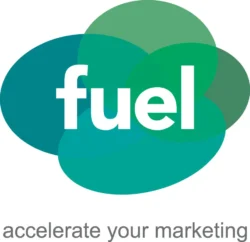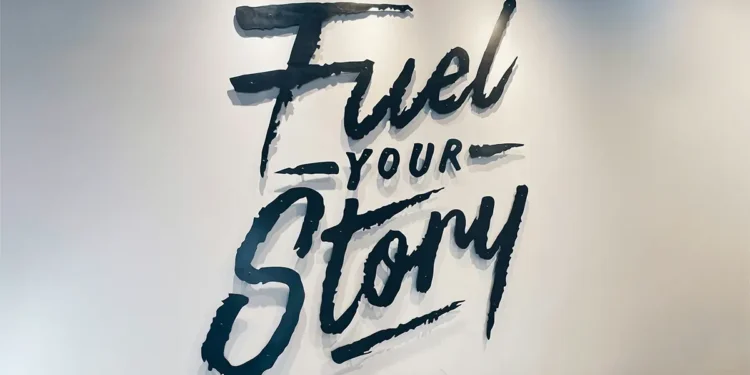Vicky Boulton, Marketing Consultant for Fuel, talks about how to use storytelling to get the best out of your marketing.
The business market place is crowded, and in an average 24 hours it’s estimated that we see (consciously and subconsciously) hundreds and possibly thousands of marketing messages, which are all vying for our attention.
One possible solution is to present your message in an interesting and memorable way that gets people’s attention immediately. Essentially what I am talking about here is storytelling. If you think that the evolution of our brains has not progressed much from our pre-writing, cavemen days, it will probably come as no surprise to learn that we still absorb information best via a narrative structure.
“Tell me a fact and I’ll learn.
Tell me a truth and I’ll believe.
But tell me a story and it will live in my heart forever.”
– Native American Proverb –
Bring Your Brand To Life
One of the most common things that I come across, is the fact that some smaller businesses have a problem bringing what they do to life with stories. Big brands don’t seem to share this affliction at all. Guinness, Compare the Market, Cadbury and M&S are all good examples of organisations who seem to beautifully illustrate the importance of powerful storytelling for marketing purposes. And who can forget John Lewis and their eagerly awaited annual Christmas advert?
But for smaller companies, there still seems to be a reluctance to seize the day and tell their story through their marketing materials. This could be to do with the fact that they are afraid that storytelling will come across as unprofessional, or perhaps they think it’s appropriate to tell people anything other than in a face to face meeting.
Credibility. Understanding. Memorability
Whatever the reasons, I completely disagree with that approach. A story can be a really powerful way of illustrating the value of your product and/or service, and in my experience is often the way that your prospects and customers explain what you do to others. But if you are going to tell a story, remember that it needs to be all of the following:
- Simple
- Unexpected
- Concrete
- Credible
- Emotional
Many brands do use stories in their communications with their customers, but often this is little more than a heritage story on the website or in the brochure, often detailing how the business started. Storytelling as a marketing tool has far greater potential. But don’t get hung up on the technology, or the intricacies of what you do, the important thing to do is to simply tell a story that will get people’s attention in a way that they will react to in a positive way.
After all, true brand engagement is more than just raising awareness; it’s about active participation. A campaign’s success cannot be measured only by the number of contacts. The extent of the contact and the depth of engagement are far more important. What could be more engaging to our cavemen brains than a good story?

Top Tips For Effective Storytelling
So my five points to help you to achieve effective storytelling for your business are:
- Don’t fill your home page, brochure or networking slot with meaningless generalisations. Be imaginative and use descriptive words such as love, excited, relieved, delightful, magical, happy, satisfaction and memorable.
- Don’t force your audiences to sit through tedious hours of PowerPoint presentations full of text that you just end up reading out to them. Next time be bolder, try PowerPoint slides with just a few trigger words like discover, win, inspire, reliable, trusted, save, exclusive, faster, boost etc.
- Make your case studies specific and very personal, and inject some emotion. Target your potential customer’s emotional experience to entice them. Focus on them and how they will feel after their purchase, rather than just list the features of your product or service.
- Know your own story. Present yourself in a way that will make people remember. And face the fact that it is rarely what you do, or who you work for that will be the most memorable thing about you.
- Understand what your audience will respond to. Customers are better informed these days. Consider then that people who visit your website probably already know what you do – that’s why they are there! So maybe you don’t need to tell them what they already know – tell them something they don’t know about you or your business, or your people. Something interesting that they will remember and/or pass on to others. Concentrate on why you do what you do, or how you do it.
Tell More To Sell More
Thanks to the internet, we’ve all been given the opportunity to become storytellers through blogs (like this one) and social media. And more importantly, the internet provides people who want to listen with the opportunity to follow people and companies they find interesting. They even have the mechanisms to instantly pass on your story to other people who may like to hear what you have to say. Never before have businesses had the chance to use storytelling as a marketing tool, to build a network of followers and to pull people towards them by being interesting and different.
So what’s your excuse? When it comes to stories, brands that tell more, sell more. Become a storyteller now and see the difference it can make to your business.









